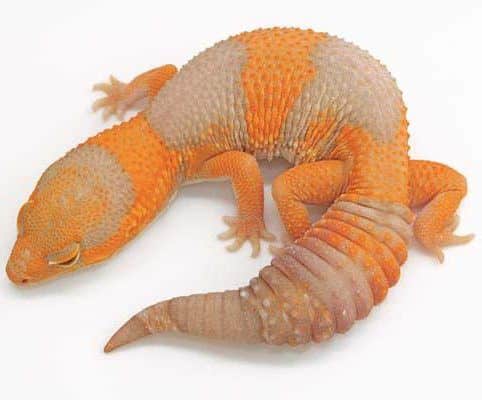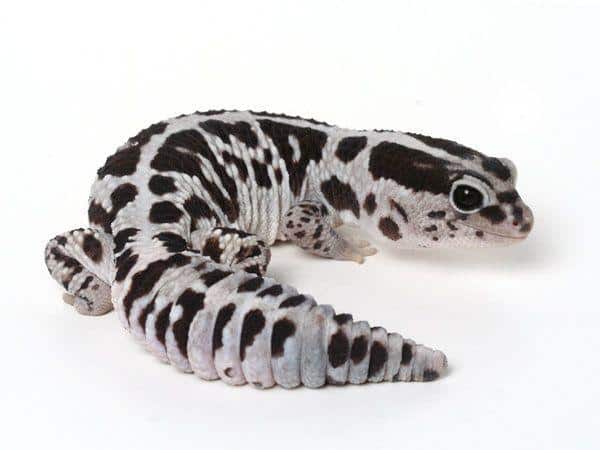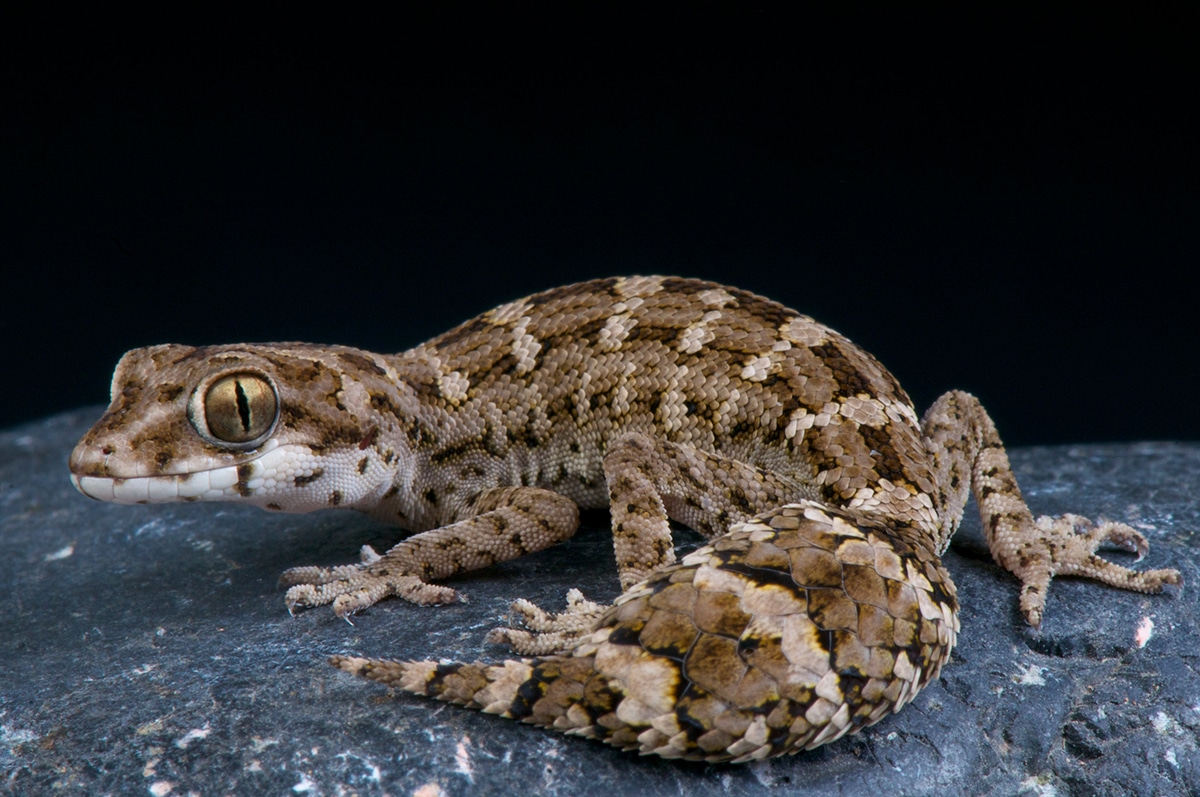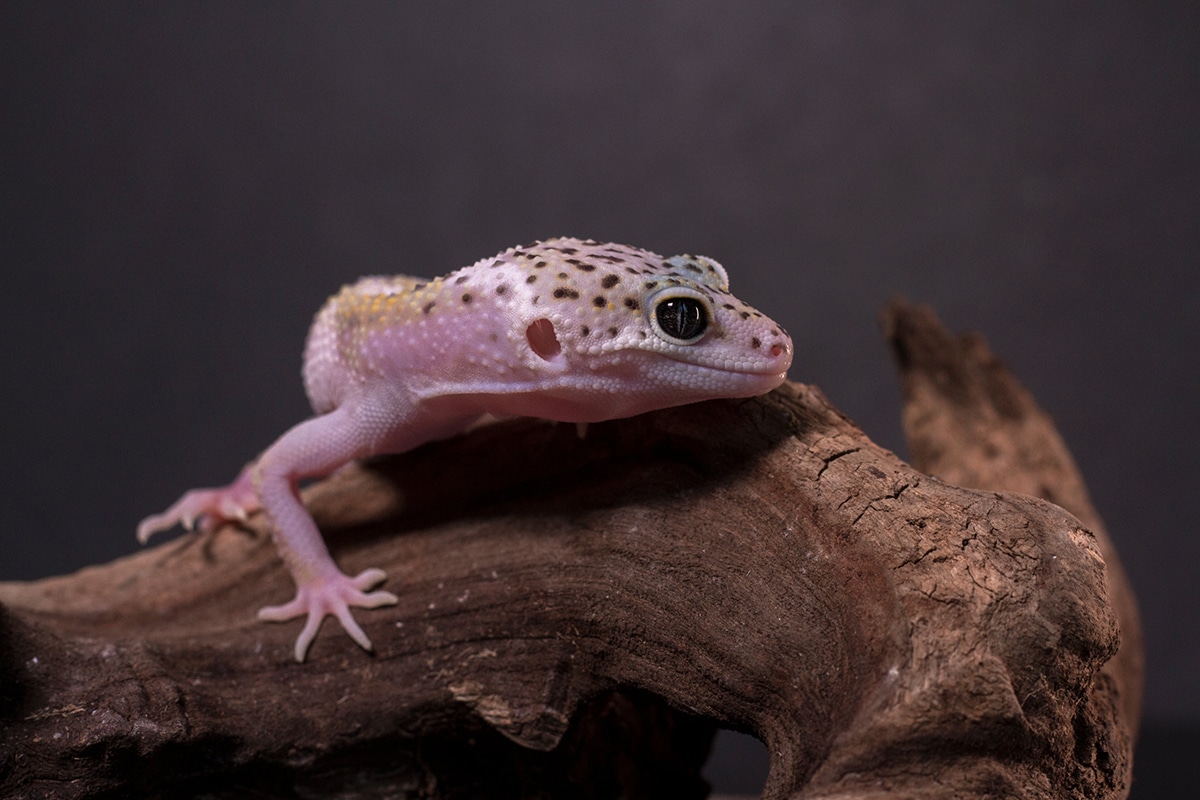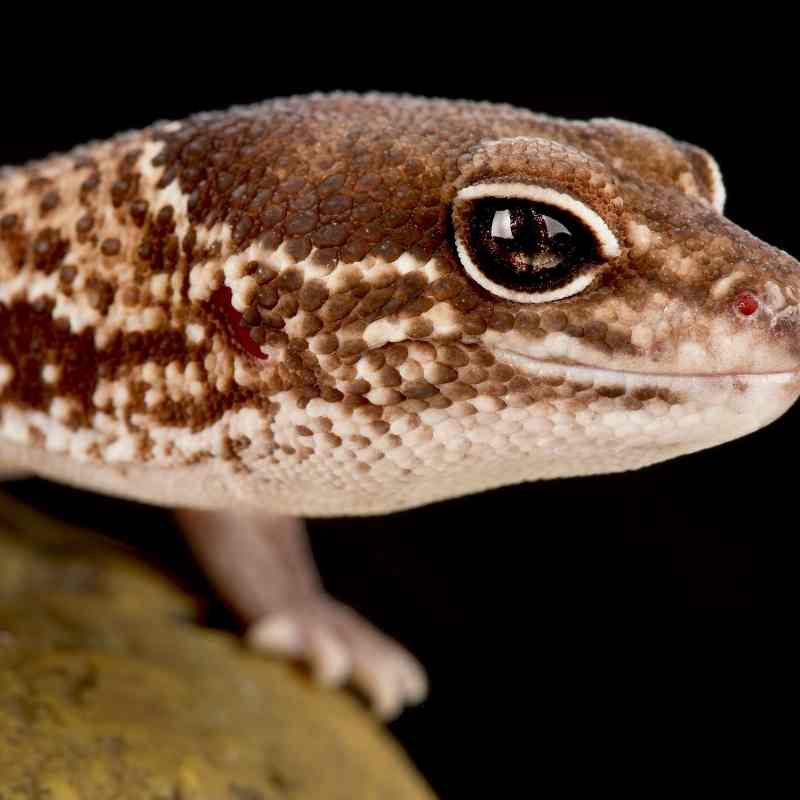How To Bond With A Fat-Tailed Gecko And Get It To Trust You
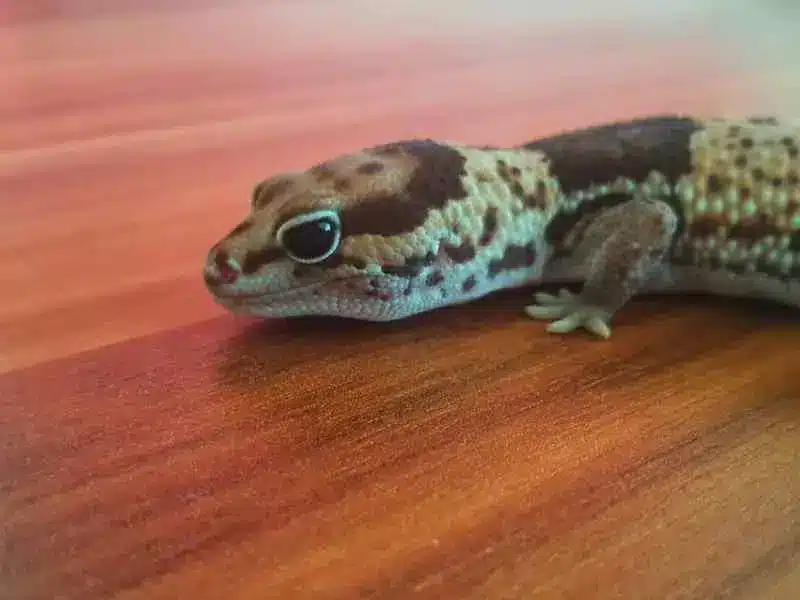
Whether you are an animal lover or a first-time reptile owner, an African fat-tailed gecko might be your perfect pet.
These geckos are very tame, require relatively minimal supervision, and if taken care of correctly, they might even be your best friend for a decade or two!
Contents
Do Your Gecko Like To Be Held?
Yes, they enjoy being held. African fat-tailed geckos are very docile and respond well to human contact. So, if you are wondering how you can create a good bond with your gecko and gain their trust, handling them properly, ie. how you hold them, is very crucial.
Here are some tips on how to handle them:
- Approach your gecko gently. Better to approach them from the front as they need to know who is approaching. Avoid covering your hands over them, and do not try to grab from above, chase them, or pull them out of a hiding place.
- You can start with a gentle rub on their head before picking them up.
- Lower your hand gently to the ground, let the gecko walk, and climb calmly onto your hands whenever possible.
- Handle your gecko close to the ground so it won’t get injured if they fall from your hands.
- Do not put stress on the gecko. Avoid sudden movements and keep them away from noise and loud sounds, as they can get scared.
- Support the whole body and make sure their legs aren’t dangling. Never press your hands on their body when you hold them up too.
- Never hold them by their tail. They can feel threatened, detach themselves from you, and lose their tail.
- Wash your hands before and after handling to avoid bacterial transfer between you and your gecko.
How Long Until Your Gecko Trusts you?
If you just brought home your new pet gecko, it takes at least two weeks before you can start handling them properly.
During this period, you should allow them to get used to your presence – let them watch you from inside the enclosure. Also, try to put your hands inside their tank occasionally so they can familiarize themselves with your hands. Additionally, they also need to start being fed regularly as this will help you to gain their trust.
Once your gecko is comfortable with their home, it’ll eventually stop running away, and you can start to handle them. But this doesn’t mean they’ll trust you completely – this takes time and regular handling. Ideally, it would be best to start handling them only thrice weekly. Over time, when they get more comfortable with you, a few minutes each day wouldn’t overwhelm or stress the gecko.
When Do You Know If Your Gecko Is Scared?
Squeaking and heavy breathing can be a way for your gecko to tell you they’re scared. They are also known to lose their tail when they’re frightened. If this does happen, and they do not want to be held, put them back in their enclosure.
How Can You Bond With Your Gecko?
Other than properly handling your gecko, other factors will determine the bond you and your gecko have. You, as the owner, must understand that they deserve to be under the right captive conditions. You must make their new habitat as comfortable as possible.
Read below to know how to give your African fat-tailed gecko the best life…
Give Them A Suitable Tank/Enclosure:
These are the few things to keep in mind when housing your gecko:
- The recommended tank size for both hatchlings and adults is about 10 gallons. Although they have a fast growth rate, these reptiles won’t grow as much as others. The fully grown adults will only measure 7 to 9 inches and weigh between 45-75 grams.
- Wooden vivariums with glass sliding doors and large air vents are ideal as they are great insulators to maintain the humid environment the geckos need.
- These geckos can be housed alone or in groups. But you should never keep two males together because they are notoriously territorial.
Just like our homes, their home needs to be cleaned too. These are some necessary tips in cleaning your gecko’s enclosure:
- Their enclosure should be deep-cleaned once a month and spot-cleaned daily.
- Use a reptile-friendly disinfectant spray and paper towels as wipes to clean their enclosure inside and out.
- Remove everything (gecko, decorations, bedding, etc.) from the enclosure during cleaning.
- Use a spray or a tank humidifier to mist the enclosure daily.
- Clean up their feces daily. Never allow waste to build up, as these geckos are particularly susceptible to getting a disease called Cryptosporidiosis (caused by a parasite that lives in soil and water)
Set Up Suitable Lighting To Generate Heat:
The lighting has to create a temperature gradient as these cold-blooded creatures must self-regulate their body temperatures by moving to different parts of the enclosure.
A few criteria to keep in mind:
- These geckos must be exposed to 10-12 hours of light daily.
- They do not need a strong UVB light source – around 5% over a small area should be sufficient.
- A T8 or a T5 lamp should be mounted to the back of the ceiling, closest to the warmer end, to generate a good UV gradient.
- They should have a hot side of 90-95°F (helps to speed up metabolism) and a cool side of 80°F (helps to conserve energy). Basking lights should be available daily to establish 50-70% humidity levels.
Apart from lighting, some decorations can also generate humidity, such as hide boxes, porous materials like coconut fiber, and even a water bowl.
Take Care of Your Gecko’s Health
Giving your gecko a humid and clean enclosure is not the only thing you should do to keep them happy and healthy.
What they consume is also important. Insects make up 100% of their diet. Hatchlings under four months should be fed five crickets, and the adults should be fed nine crickets or worms about 3-4 times a week. An expert tip would be not to feed the geckos anything bigger than the space between their eyes.
Not to forget, you should always give them access to fresh, clean drinking water. Be careful to choose a shallow bowl to keep them from drowning, as they might occasionally soak themselves in the dish. Bathing them won’t be necessary as their skin is cleaned during shedding.
How to know when your gecko is sick?
It is not necessarily a big issue if their feces are runny and strange-colored. However, if your gecko starts losing their appetite and they are not shedding properly, it is best to bring them to the veterinarian for a check-up.
Conclusion
Pay your gecko some attention and give them time to adjust to you and its new home. As any friendship goes, trust and bonds take time to build. But with patience, your gecko will eventually turn to love being held by you.
